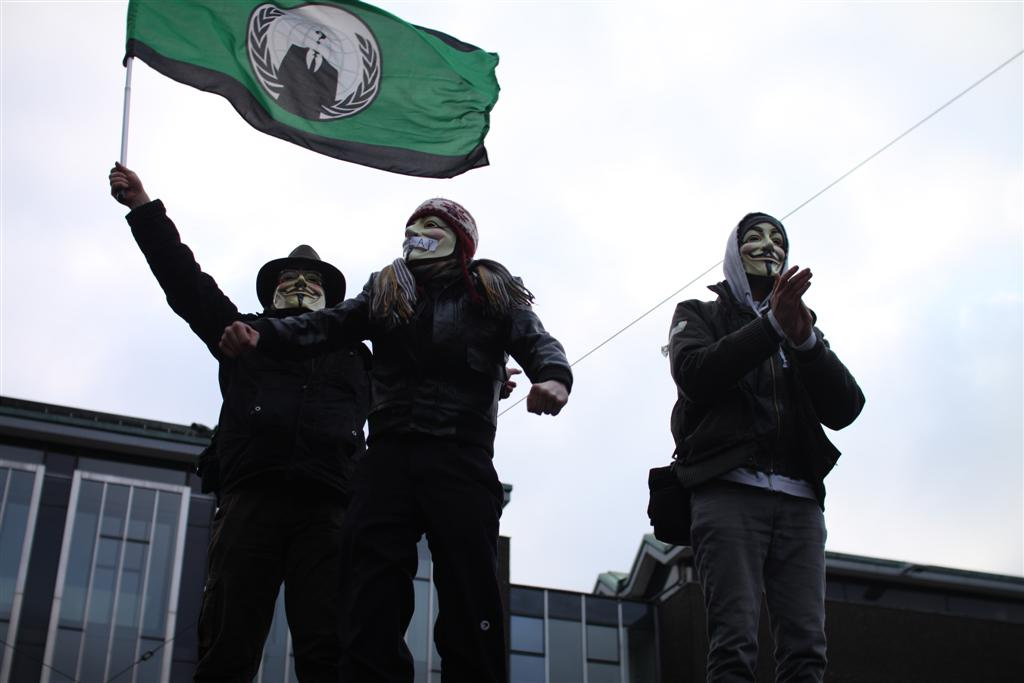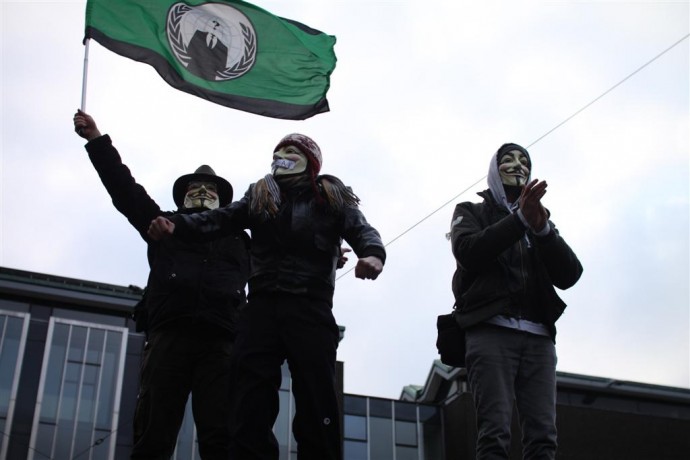PARIS (AP) — Interpol said Tuesday that 25 suspected members of the loose-knit Anonymous hacker movement have been arrested in a sweep across Europe and South America.
The international police agency said in a statement that the arrests in Argentina, Chile, Colombia and Spain were carried out by national law enforcement officers working under the support of Interpol’s Latin American Working Group of Experts on Information Technology Crime.
The suspects, aged between 17 and 40, are suspected of planning coordinated cyber-attacks against institutions including Colombia’s defense ministry and presidential websites, Chile’s Endesa electricity company and national library, as well as other targets.
The arrests followed an ongoing investigation begun in mid-February which also led to the seizure of 250 items of IT equipment and mobile phones in searches of 40 premises in 15 cities, Interpol said.
Earlier Tuesday police in Spain announced the arrest of four suspected Anonymous hackers in connection with attacks on Spanish political party websites. These four were among the 25 announced by Interpol.
A National Police statement said two servers used by the group in Bulgaria and the Czech Republic have been blocked.
It said the four included the alleged manager of Anonymous’ computer operations in Spain and Latin America, who was identified only by his initials and the aliases “Thunder” and “Pacotron.”
The four are suspected of defacing websites, carrying out denial-of-service attacks and publishing data on police assigned to the royal palace and the premier’s office online.
Interpol is headquartered in Lyon, France. The organization has no powers of arrest or investigation but it helps police forces around the world work together, facilitating intelligence sharing.
Anonymous, whose genesis can be traced back to a popular U.S. image messaging board, has become increasingly politicized amid a global clampdown on music piracy and the international controversy over the secret-spilling site WikiLeaks, with which many of its supporters identify.
Authorities in Europe, North America and elsewhere have made dozens of arrests, and Anonymous has increasingly attacked law enforcement, military and intelligence-linked targets in retaliation.
One of Anonymous’ most spectacular coups: Secretly recording a conference call between U.S. and British cyber investigators tasked with bringing the group to justice.
Anonymous has no real membership structure. Hackers, activists, and supporters can claim allegiance to its freewheeling principles at their convenience, so it’s unclear what impact the arrests will have.
Some Internet chatter appeared to point to a revenge attack on Interpol’s website, but the police organization’s home page appeared to operating as normal late Tuesday.
One Twitter account purportedly associated with Anonymous’ Brazilian wing said the sweep would fail.
“Interpol, you can’t take Anonymous,” the message read. “It’s an idea.”



